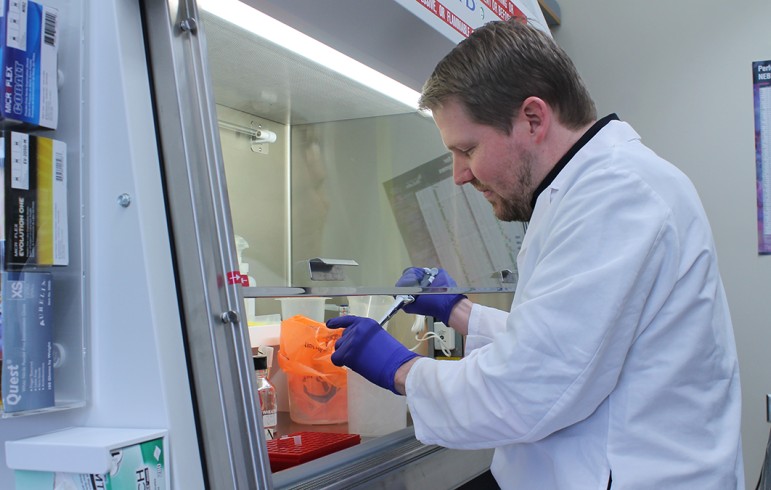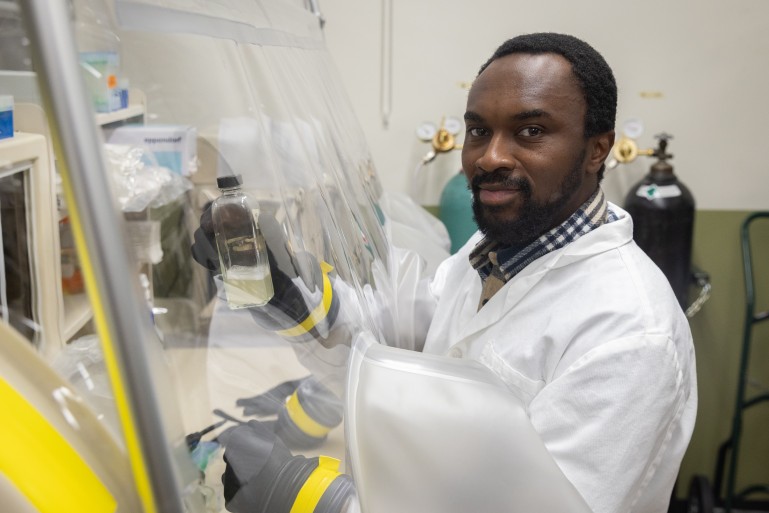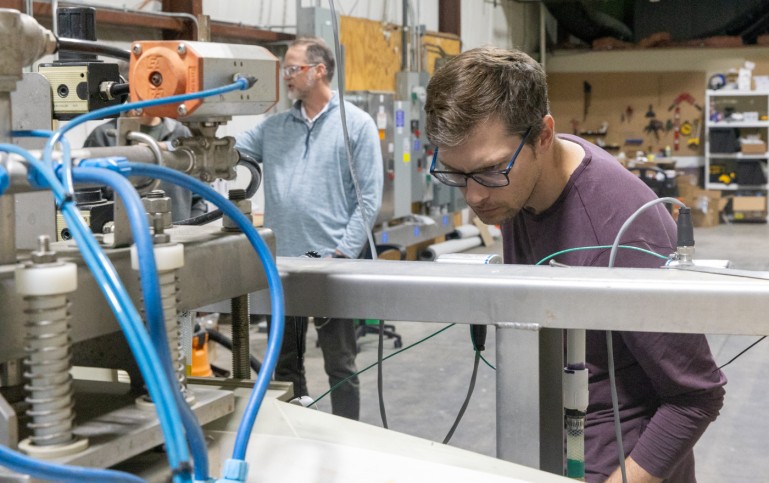After a year of design iterations, brainstorming sessions, and wind tunnel tests, UW-Madison’s WiscWind competition team wrapped up their year at the Collegiate Wind Competition in Boulder, Colorado. Although the team didn’t place, they walked away with something just as valuable – real-world experience in sustainable energy design and a renewed passion for innovation.
Non-food crops like switchgrass are a promising source of plant-based fuels like ethanol and isobutanol, which can be produced by microbes. But switchgrass grown during droughts has high levels of chemicals that limit how much sugar these microbes can convert to alcohol. This experiment shows that breaking down switchgrass with ammonia, water, and enzymes and then lowering the acidity of the resulting hydrolysate solution both improve fermentation and biofuel production from switchgrass, especially when grown in drought conditions.
Undergraduates, fellow grad students, postdoctoral researchers – and even her own advisor – credit Amy Enright Steinberger for her support in and out of the lab, which applies bacterial genetics to address critical issues in the bioeconomy and antimicrobial resistance.
Computer-assisted technology for recycling plastics, a technique for producing a valuable chemical from agricultural waste, and genetic mutations that can turn trees into carbon-sucking chemical factories are among the innovations by Wisconsin Energy Institute investigators that address critical
Abundant but chemically complex, lignin has long been one of the biggest challenges in the quest to produce economically viable plant-based fuels.
UW–Madison graduate student Sam Davison hopes to make the world seem a little more interesting and people feel a bit less pessimistic. If someone learns some science along the way, that’s just a bonus.
Brian Fox, the Marvin J. Johnson Professor in Fermentation Biochemistry at the University of Wisconsin–Madison, tinkers with the way living things use chemistry to turn their own blueprints, DNA, into the processes that make a healthy organism go.



